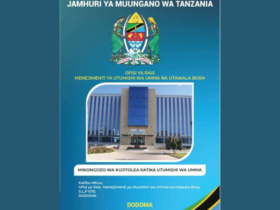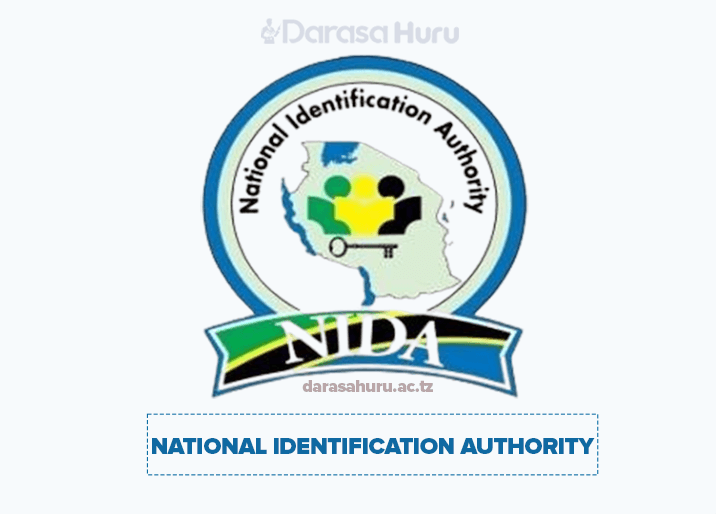TRA Possible Interview Questions (Maswali ya Interview TRA) 2025
Welcome to our website darasahuru.ac.tz. In this article, Are you looking for TRA Oral Interview Questions (Maswali ya Usaili wa Mahojiano na Vitendo TRA)? TRA would like to recruit qualified, dynamic and ethical personnel to fill positions in the Domestic Revenue, Customs and Excise, Human Resource Management and Administration, Legal Services, Procurement Management, Research and Planning, Finance, Internal Audit, Internal Affairs and Risk and Compliance Department. TRA Possible Oral Interview Questions 2025
What is VAT?
VAT is a consumption type of tax levied on the supplies of goods and services at each stage of production or distribution chain.
Who is required to register for VAT?
Businesses with annual taxable turnover exceeding the VAT threshold of TZS 200,000,000 (Two hundred Millions) must register. Voluntary registration is also allowed for certain specific economic activities.
How is VAT calculated?
VAT is calculated as a percentage of the taxable value of goods or services, applying the prescribed VAT rates of 18% or 0%
What does it mean by the terms Input VAT, Output VAT and VAT payable?
These are the key concepts related to how VAT is charged and deducted in the economic supply chain.
i. Output Tax
- This is VAT charged by a registered supplier on taxable goods or services sold to customers.
- It is collected from customers and must be remitted to TRA.
- Example:
- If a business sells goods worth TZS 1,000,000 at a VAT rate of 18%, the output tax is TZS 180,000.
ii. Input Tax
- This is VAT paid by a business on purchases of goods and services used for its taxable business activities.
- If a business is VAT-registered, it can claim a credit for this tax against its output tax.
Example:
- If a business buys raw materials worth TZS 500,000 with VAT of 18%, the input tax is TZS 90,000.
VAT Payable is the amount of Value Added Tax (VAT) that a registered business must remit to TRA after offsetting input tax against output tax. It represents the tax collected from customers that exceeds the VAT paid on business purchases.
- How is VAT Payable Calculated?
The formula for VAT payable is:
VAT Payable = Output Tax − Input Tax
Example Calculation
- A business sells goods worth TZS 10,000,000 and charges 18% VAT.
- Output Tax = 10,000,000 × 18% = TZS 1,800,000
- The business purchases raw materials for TZS 5,000,000 and pays 18% VAT.
- Input Tax = 5,000,000 × 18% = TZS 900,000
- VAT Payable:
- 1,800,000 (Output Tax) – 900,000 (Input Tax) = TZS 900,000 payable to TRA.
What If Input Tax is Higher Than Output Tax?
- If Input Tax > Output Tax, the excess input tax can be carried forward to offset future VAT liabilities or refunded under certain conditions.
- What happens if I fail to file my VAT return on time?
MATOKEO YA USAILI WA KUANDIKA TRA 2025 PDF
Late filing may result in penalties and interest on the unpaid VAT amount.
What are tax estimates, and who needs to file them?
Tax estimates are advance calculations of your taxable income and tax liability for a financial year. Businesses and self-employed individuals are usually required to file tax estimates
How are tax estimates calculated?
Tax estimates are calculated based on the expected income, deductions, and applicable tax rates. Guidance is available on the TRA’s Taxpayers portal.
When should I submit my tax estimates?
In Tanzania, tax estimates must be submitted at the beginning of the year of income, that is within the first quarter of the respective year of income.
Can I revise my tax estimates?
Yes, taxpayers are allowed to revise their tax estimates during the respective year of income, if there are significant changes in income or business performance.
What happens if I fail to submit a tax estimate?
Failure to submit tax estimates may result in penalties or the issuance of default assessments by the tax authority.
Are there penalties for incorrect tax estimates?
If the estimated tax is significantly lower than the actual tax liability, penalties or interest may apply. It is important to provide accurate estimates.
CLICK HERE TO READ MORE POSSIBLE INTERVIEW QUESTIONS









































Leave a Reply